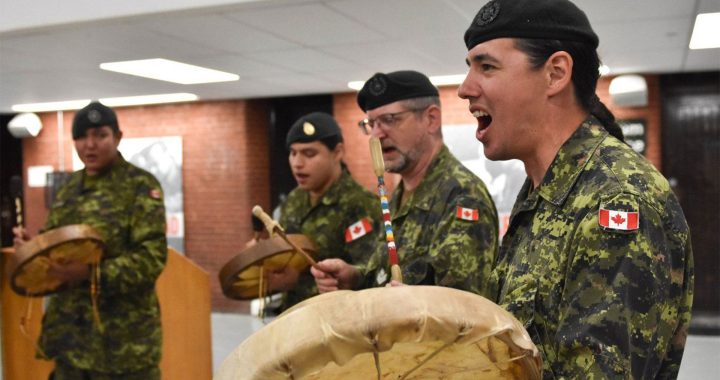Leaders with the Assembly of First Nations say Quebec made the wrong decision when it decided to challenge Bill C-92 – the federal legislation that establishes Indigenous jurisdiction over child and family services.
“I’ve said this to the government of Quebec a number of times, ‘You had the opportunity to do things differently but you have chosen the other route,’” said AFN Regional Chief for Quebec and Labrador Ghislain Picard at a news conference in Ottawa on Monday. “As we’ve seen in the past couple of weeks, the government of British Columbia has decided to adopt a law that gives that capacity to First Nations in that province.
“Why isn’t it possible for Quebec to do the same?”
The Trudeau government passed the legislation in 2019 and the Quebec has been fighting it on jurisdictional grounds ever since.
Both Canada and Quebec asked the Supreme Court to make rulings on different points in the legislation.
Two of its clauses — sections 21 and 22(3) respectively — give Indigenous laws the force of federal law and empower them to override conflicting provincial statutes. On Feb. 10, 2022, the Quebec Court of Appeal ruled those sections are unconstitutional.
Shortly after, Canada announced it was heading to the country’s highest court to fight the annulment of those two sections.
Quebec also filed its own appeal of the court decision with the Supreme Court. The province is reiterating its original argument that the entire act is unconstitutional, not just the two sections.
This week the Supreme Court of Canada will hear the case.
Read More:
Canada appeals to high court in fight with Quebec over Indigenous child welfare law
Quebec has ‘harder case’ to make as challenge to child welfare law heads to Supreme Court: lawyer
AFN Manitoba Regional Chief Cindy Woodhouse said provinces should be working with First Nations to implement Bill C-92 rather than fighting them in the courts.
“Provinces and territories must work with First Nations to support the implementation of the act and First Nations laws through meaningful engagement,” she said “Not fighting First Nations rights and jurisdiction by taking us to the Supreme Court.”
AFN B.C. Regional Chief Terry Teegee added by challenging the jurisdiction of the bill, provinces like Quebec are only further perpetuating an already broken child welfare system.
“The statistics show that many of our Indigenous children are in care and as we’ve stated many, many times here in Canada, it’s the new residential school,” he said. “Whether it was ‘60s Scoop, or child welfare, or the millennial scoop – far too often our children are in care and this is why our Indigenous peoples need to assert our jurisdiction over child welfare.”
And Federation of Sovereign Indigenous Nations Vice-Chief David Pratt had this message for the Supreme Court and provinces.
“What I want to remind the provinces and the supreme court is that our laws and jurisdiction over our children existed for 10,000 years and more on Turtle Island here in this area,” he said. “And I just want to state for the record too that not only are we supporting the Quebec challenge, we are unified in terms of asserting the jurisdiction and the sovereignty that we’ve never given up.”
The Supreme Court will hear the case on Wednesday and Thursday.
The AFN Special Chiefs Assembly begins Tuesday in Ottawa.










